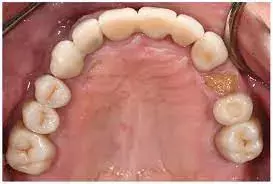- Home
- Medical news & Guidelines
- Anesthesiology
- Cardiology and CTVS
- Critical Care
- Dentistry
- Dermatology
- Diabetes and Endocrinology
- ENT
- Gastroenterology
- Medicine
- Nephrology
- Neurology
- Obstretics-Gynaecology
- Oncology
- Ophthalmology
- Orthopaedics
- Pediatrics-Neonatology
- Psychiatry
- Pulmonology
- Radiology
- Surgery
- Urology
- Laboratory Medicine
- Diet
- Nursing
- Paramedical
- Physiotherapy
- Health news
- Fact Check
- Bone Health Fact Check
- Brain Health Fact Check
- Cancer Related Fact Check
- Child Care Fact Check
- Dental and oral health fact check
- Diabetes and metabolic health fact check
- Diet and Nutrition Fact Check
- Eye and ENT Care Fact Check
- Fitness fact check
- Gut health fact check
- Heart health fact check
- Kidney health fact check
- Medical education fact check
- Men's health fact check
- Respiratory fact check
- Skin and hair care fact check
- Vaccine and Immunization fact check
- Women's health fact check
- AYUSH
- State News
- Andaman and Nicobar Islands
- Andhra Pradesh
- Arunachal Pradesh
- Assam
- Bihar
- Chandigarh
- Chattisgarh
- Dadra and Nagar Haveli
- Daman and Diu
- Delhi
- Goa
- Gujarat
- Haryana
- Himachal Pradesh
- Jammu & Kashmir
- Jharkhand
- Karnataka
- Kerala
- Ladakh
- Lakshadweep
- Madhya Pradesh
- Maharashtra
- Manipur
- Meghalaya
- Mizoram
- Nagaland
- Odisha
- Puducherry
- Punjab
- Rajasthan
- Sikkim
- Tamil Nadu
- Telangana
- Tripura
- Uttar Pradesh
- Uttrakhand
- West Bengal
- Medical Education
- Industry
Screw-retained ceramic-veneered, monolithic partial ISFDPs have long survival

Screw-retained ceramic-veneered, monolithic partial ISFDPs have long-term survival suggests a new study published in the Journal of Prosthodontics
A study is done to assess the clinical performance of screw-retained, ceramic-veneered, monolithic zirconia partial implant-supported fixed dental prostheses (ISFDP) over 5–10 years and to evaluate implant- and prosthesis-related factors influencing treatment failure and complications.
Partially edentulous patients treated with screw-retained all-ceramic ISFDPs with 2–4 prosthetic units with a documented follow-up of ≥5 years after implant loading were included in this retrospective study. The outcomes analyzed included implant/prosthesis failure and biological/technical complications. Possible risk factors were identified using the mixed effects Cox regression analysis.
Results
A screened sample of 171 participants with 208 prostheses (95% of the restorations were splinted crowns without a pontic) supported by 451 dental implants were enrolled in this study. The mean follow-up duration after prosthesis delivery was 82.4 ±17.2 months. By the end of the follow-up period, 431 (95.57%) of the 451 implants remained functional at the implant level. At the prosthesis level, 185 (88.94%) of the 208 partial ISFDPs remained functional. Biological complications were observed in 67 implants (14.86%), and technical complications were observed in 62 ISFDPs (29.81%). Analysis revealed only emergence profiles (over-contoured) as a significant risk factor for implant failure (p<0.001) and biological complications (p<0.001). Full-coverage ceramic-veneered zirconia prostheses had a significantly greater chance of chipping (p<0.001) compared with buccal-ceramic-veneered or monolithic zirconia prostheses.
Screw-retained ceramic-veneered, monolithic partial ISFDPs have a favorable long-term survival rate. Over-contoured emergence profile is a significant risk factor associated with implant failure and biological complications. Buccal-ceramic-veneered and monolithic zirconia partial ISFDPs lower the initial prevalence of chipping compared with a full-coverage veneered design.
Reference:
Zhang, Y, Luo, J, Di, P, Chen, B, Li, J, Yu, Z, et al. Screw-retained ceramic-veneered/monolithic zirconia partial implant-supported fixed dental prostheses: A 5 to 10-year retrospective study on survival and complications. J Prosthodont. 2023; 00– 00. https://doi.org/10.1111/jopr.13723
Keywords:
Screw-retained, ceramic-veneered, monolithic, partial, ISFDPs, have, long-term, survival, Zhang, Y, Luo, J, Di, P, Chen, B, Li, J, Yu, Z, Journal of Prosthodontics
Dr. Shravani Dali has completed her BDS from Pravara institute of medical sciences, loni. Following which she extensively worked in the healthcare sector for 2+ years. She has been actively involved in writing blogs in field of health and wellness. Currently she is pursuing her Masters of public health-health administration from Tata institute of social sciences. She can be contacted at editorial@medicaldialogues.in.
Dr Kamal Kant Kohli-MBBS, DTCD- a chest specialist with more than 30 years of practice and a flair for writing clinical articles, Dr Kamal Kant Kohli joined Medical Dialogues as a Chief Editor of Medical News. Besides writing articles, as an editor, he proofreads and verifies all the medical content published on Medical Dialogues including those coming from journals, studies,medical conferences,guidelines etc. Email: drkohli@medicaldialogues.in. Contact no. 011-43720751


